History of API
The Association of Physicians of India is a professional body of consultant physicians formed in 1944. The vision of a few stalwart Physicians of India gave birth to the idea of forming the Association of Physicians of India in 1944 mainly to provide a common forum to the Physicians of India to meet and to share experience and research observations in the field of Medicine.
The Association of Physicians of India is a professional body of consultant physicians formed in 1944. It’s members are physicians with postgraduate qualifications in different specialities. Currently the membership of the association is 22,000 and it is increasing every year. Obviously this Association is the most elite physician’s fraternity in India. This Association conducts various educational and professional activities for it’s members throughout the year.
Founding Members
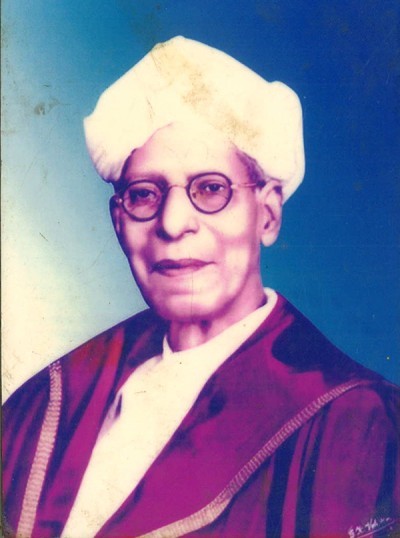
Dr. M. R. Guruswami
Madras
During British rule, most of the top jobs in government hospitals in India were invariably given to doctors from the United Kingdom. Indeed, there was an I.M.S. (Indian Medical Service) which was at first open only to Whites. To occupy such high positions in Government hospitals was almost an impossibility for Indians. Dr. Guruswami Mudaliar achieved this rare distinction and created history.
He was the first Indian to be appointed Professor of Therapeutics at the Madras Medical College. Above all, he earned renown for his ‘lucky hand’ (kairaasi in Tamil). Indeed, he was the only Indian doctor of the day whom the grateful public believed had the healing touch of the hand.
Guruswami Mudaliar was born in 1880 in Nalamangala, then part of the Mysore Principality. His father was a prosperous building contractor and, like most men of the day with such wealth, he had two wives. Guruswami was the son of the second wife. For his elementary school education, young Guruswami had to walk several miles back and forth. His prosperous father felt that it would give his son a good constitution and also a sense of purpose in life. After completing his high school, he went to Bangalore and joined the famous Central College where he got his B.A. degree. One of his collegemates and a friend for life was Rajaji.
After taking his degree, Mudaliar moved to Madras, then the leading city in South India. He completed his MBBS degree there, securing a First Class and high rank. With cash-rich private hospitals not yet in vogue, and with the middle-class society day viewing government jobs as synonymous with life-long security – and a lure for eligible brides of status – Mudaliar joined the Madras Presidency Medical Department and was posted to the Tanjore district headquarters Government Hospital where he worked for many years.
During the 1950s, influenza raged like an epidemic in Madras City. At the time the S.S. Vasan-owned Ananda Vikatan interviewed Dr. Mudaliar and he suggested in the interview a tablet called Elkosyn as enough to cure an influenza attack. The interview created a sensation and many bought the tablet by the hundreds! However, many city doctors were highly critical of Mudaliar for prescribing a branded tablet as treatment which they felt strongly was against medical ethics. Mudaliar replied that more than ethics the welfare of the patient was important
Dr. Guruswami Mudaliar passed away in 1958 when he was 78. He lived in the Kilpauk area and the now popular over-bridge is named after him as the ‘Guruswami Mudaliar Bridge.’
President, APICON, in the year 1946 at Bombay.
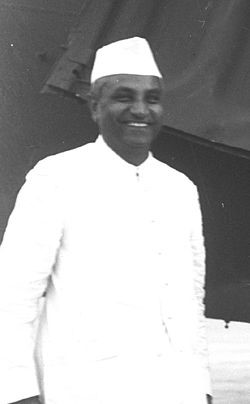
Dr. Jivraj N. Mehta
Mumbai
Dr. Jivraj N Mehta (1887-1978) was a renowned physician, freedom fighter, administrator and the first Chief Minister of Gujarat.
He was born on 29 August, 1887, in Amreli, studied at the Grant Medical College and JJ Hospital in Bombay and lived in London from 1909 to 1915, where he completed his FRCS and MD. After suffering a personal setback in health, and practicing for the Tata’s and the Baroda State, he assumed the position of the first Dean of KEM Hospital in Bombay in 1925.
Dr. Jivraj Mehta was an avid participant in the freedom struggle, taking part in the Non-cooperation Movement and the Quit India Movement, for which he was jailed twice. He was the Dewan of Baroda (1948-49) and was the first Chief Minister of Gujarat (1960-63). As the first Chairperson of the IIMA Board of Governors, he played an important role in supporting IIMA in the initial years, facilitating the transfer of land to build IIMA’s campus. He also deputed Mr. G. C. Baveja (IAS), Deputy Secretary to the Government of Gujarat, to IIMA as Officer on Special Duty until 1963 when a full-time administrative officer was recruited by IIMA.
Doctor of Mahatma Gandhi – He was briefly the personal doctor to Mahatma Gandhi after returning to India and joined the independence movement.
He was twice incarcerated (1938 and 1942) by the British government for his role in Gandhi’s Satyagraha movement. After independence in 1947, he held various public offices. He served as the first “Dewan” (Prime Minister) of the erstwhile Baroda state in free India sworn-in on 4 September 1948, director general of health services and secretary to the ministry of health in the central government during the partition period, minister of public works, finance, industry and prohibition for the then Bombay state.
Dr. Jivraj Mehta resigned from IIMA to take up the position of the High Commissioner for India in the UK (1963-66). His wife, Hansa Mehta (1897-1995) was a freedom fighter and Vice-Chancellor of SNDT University (1946-48) and Maharaja Sayajirao University (1949-58). Dr. Jivraj Mehta passed away on 7 November, 1978.
President, APICON, in the year 1946 at Bombay.
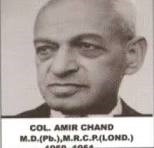
Dr. Maj. Gen. Amir Chand
Delhi
Major General Amir Chand (1889–1970) was a physician and teacher of medicine in India. In 1936, while India was still under British rule, Dr. Amir Chand became the first Indian to occupy the Chair of Medicine at King Edward Medical College, Lahore. Post Indian independence, Dr. Amir Chand was prominent in laying the foundation of modern medicine in India. He was President of the Association of Physicians of India in 1947. In 1948, he was elected President of the Indian Medical Association. Maj Gen Amir Chand was also the founder of the Indian Society of Gastroenterology. In 1960, he was elected as the professional organization’s first president.
Before he died, Amir Chand donated his savings to the Indian Council of Medical Research, the All-India Institute of Medical Sciences and the Armed Forces Medical Services. He used to say that all he had earned came from patients and, therefore, once his own needs and those of his dependents had been taken care of, the rest must be returned to the needy ailing humanity and the cause of medical education.
President APICON, in the year 1948, at New Delhi.
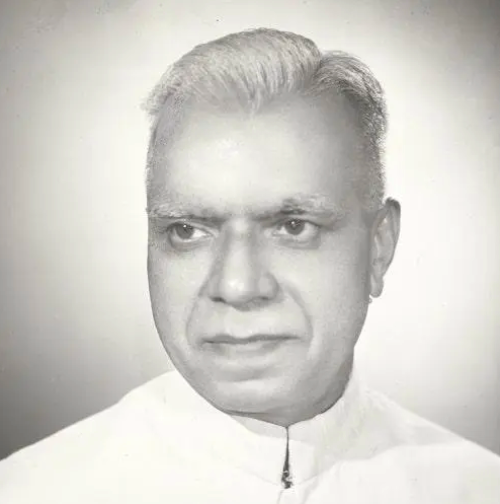
Dr. Mangaldas J. Shah
Mumbai
Mangaldas Jagjivandas Shah, the distinguished Honorary Physician and Honorary Professor of Medicine at the K.E.M. Hospital and Seth G.S. Medical College, Bombay, was bom at Godhra, Gujarat, and received his secondary education at Godhra and university education in Bombay. After passing the MBBS examination of Bombay University in the year 1931 from the Grant Medical College, he held a number of house posts and teaching posts up to 1934. He attained the Conjoint diploma in 1935 and MRCP (Lond.) in 1936. He was exempted from the viva voce examination for MRCP. He received DTM&H in 1936 and was awarded the Duncan Medal for securing 1st place by London University.
After return to India he was appointed as Hon. Assistant Physician and Hon. Assistant Prof. of Medicine in 1937, and was promoted as Hon. Physician and Hon. Prof. of Medicine in 1942 at the K.E.M. Hospital and Seth G.S. Medical College, which assignments he held till his retirement in August 1966. He had also officiated for a short period as Dean of the K.E.M. Hospital and Seth G.S. Medical College in Bombay. He was Director of Medical Services of the Gujarat State for a year.
Dr. Shah was President, Gujarat Medical Council, Member of the Gujarat Medical Council, Past President of the Association of Physicians of India, Dean of the Faculty of Medicine of Gujarat University, Fellow of the Senate of Bombay University and Baroda University, Fellow of the Indian Academy of Medical Sciences and Member of the Health Advisory Committee and Board of Health of the Old Bombay State. Just before retirement he was a Member of Senate and Syndicate of the University of Bombay.
Dr. Shah was an acclaimed teacher, who was research-minded and had over 60 original publications to his credit.
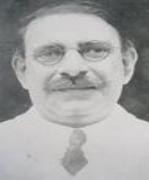
Dr. M.D.D. Gilder
Mumbai
Dr. M.D. Gilder was born at Bombay on the 5th of November 1882. His father Mr. D. D. Gilder, was a doughty champion in the cause of temperance. For half a century, he worked as the Secretary of the Temperance Association. The mantle of the father devolved itself on the shoulders of his illustrious son.
He received his early education at the New High school. The brilliancy of his talent was reveled in his academic career. He obtained a first class in all the Examinations. He graduated in 1901 and in 1905 took the L.M.S Degree.
For six years he stayed in London and secured M.D.(Bruse), L.R.C.P (London), L.R.C.S (Ed.) and F.R.I.P.H (London).
After his return he set up his practice in Bombay as a physician he earned his niche in the temple of fame. He became the President of the Bombay Medical Union and the Indian Temperance Association. He is the honorary Physician of the K.E.M Hospital.
For over 30 years he has been a member of the Bombay Municipal Corporation, The Bombay University Senate and the Director of the Bombay Mutual Life Association Society. He was also the first Non-Official President of the Bandra Municipality.President APICON, in the year 1946, at Bombay.
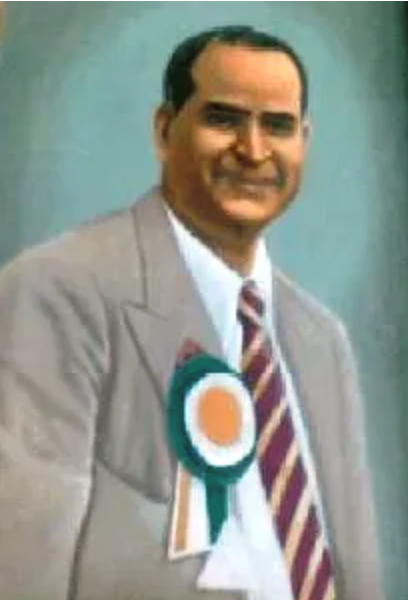
Dr. George Coelho
Mumbai
A renowned clinician, was superintendent Bai Jerbai Wadia hospital, the first children’s hospital in India.
From 1955 to 1971 was the editor of JAPI.
Pediatrics made a beginning in Mumbai in 1928‚ when Dr George Coelho‚ rightly called the father of Indian Pediatrics‚ became the Superintendent of the B J Hospital for Children – the first children’s hospital in India. He remained the head of the department of pediatrics till 1953. In 1929‚ Bai Jerbai Wadia Hospital for children became a separate independent children’s hospital
Dr. George Coelho started independent research and services in 1926. The postgraduate course for diploma in child heath was started at B J Hospital and Bai Jeerbai Wadia hospital for children in 1944 and the University of Bombay in 1946. Many of the senior pediatricians of today in the country worked at the B J Hospital for children under the leadership of Dr George Coelho
President APICON, 1953, Pune.
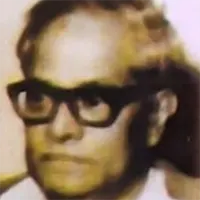
Dr. J. C. Banerjee
Calcutta
The stalwart physician, cardiologist from Kolkata, served as President, MCESA, was an inspiration for thousands of medical students and medicos throughout his career.
He was the first honorary editor of Indian Heart Journal. He was part of Expert Committee on Rehabilitation of Patients with Cardiovascular Disease, Geneva.
Published research reports in WHO, Indian Heart Journal, JIMA.
A renowned clinician, teacher, organizer founder member of API, President APICON 1956, Kolkata
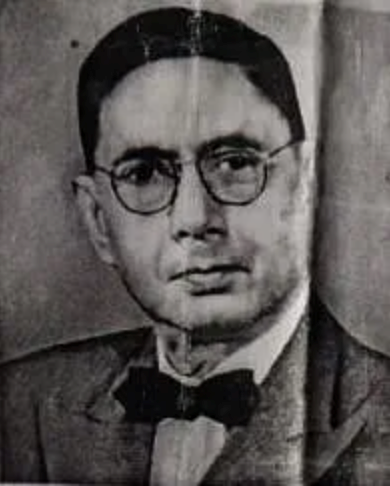
Dr. M.N. De
Calcutta
Professor M.N. De was an illustrious alumnus of Medical College, Bengal. Born in 1894, in a poor family, lost his father at an early age and encountered innumerable hardships enrooted to sublime academic height and excellence
During his undergraduate training at Medical college Bengal, he showed his academic excellence, achieved university Honors and Gold medals.
He creditably obtained his Membership from Royal College of Physician in 1926.
He joined Medical College as professor Director of Clinical Medicine
Published a number of papers in many national and international journals. He was internationally acclaimed for his work on “Bengal Splenomegaly” and ‘Epidemic Dropsy.”

Dr. N.D. Patel
Mumbai
He was one of the Founding members of the Association of Physicians of India and played a crucial role in the formation API.
Golden APICON 1995
Awards & Orations
Netaji Oration
Dr. M.N. De of Kolkata offered to the Association a sum of Rs. 5,000/- to endow an oration to be called “The Netaji Oration” to be delivered at the Conference by a person chosen by the Governing Body annually. This was accepted by the Governing Body. The first oration was honored in 1960 Dr. B.B. Bhatia.
Sarabhai Oration
The Sarabhai Foundation of Ahmedabad offered a sum of Rs. 10,000/- to endow an annual oration at the Conference. The first orator of Sarabhai oration 1967 which was discontinued.
Other Orations are
- Searle Oration - discontinued in 2010,
- Prof. Rathinavelu Subrmaniam Oration,
- Dr. P.J. Mehta Oration founded in 2000
- Dr. G. S. Sainani Oration from 2004.
- Dr. V. Parameshvara Lifetime Achievement Award in 2012
- Dr. UN Brahmachari Oration started in 2025
Other Prestigious Awards started by API
(in memory of our First API President Dr. Jivraj N. Mehta)
- Dr. Siddharth Shah Memorial Oration – started in 2021
- Dr. Y. P. Munjal Memorial Oration – started 2026
Lectureships
To recognize and stimulate the work carried out by members of the Association during their career, the Association has founded a system of lectureships. These lecturers are selected on the basis of the work published by them. They are divided into two categories, Senior and Junior. The latter were at first reserved for the younger members of the Association who received their postgraduate qualification not earlier than 15 years and any members who are not a Professor and head of the Department. These lecturers have to deliver a lecture in any place outside their city assigned to them by the Governing Body. To defray the traveling and other incidental expenses, the Association has received contributions from various donors after whom the Lectureships are named the following Lectureships are now available.
| No | Year | Name |
|---|---|---|
| 1 | 1944 | Jivraj N. Mehta |
| 2 | 1946 | M.R. Guruswamy |
| 3 | 1947 | M.D. Gilder |
| 4 | 1948 | Amir Chand |
| 5 | 1950 | B.B. Yodh |
| 6 | 1951 | P. Kutumbiah |
| 7 | 1952 | T.N. Banerjee |
| 8 | 1953 | George Coelho |
| 9 | 1954 | S.L. Bhatia |
| 10 | 1955 | A. Srinivasan |
| 11 | 1956 | J.C. Banerjee |
| 12 | 1957 | Mangaldas J. Shah |
| 13 | 1958 | T.K. Raman |
| 14 | 1959 | B.B. Bhatia |
| 15 | 1960 | R.V. Sathe |
| 16 | 1961 | R.M. Kasliwal |
| 17 | 1962 | S.S. Misra |
| 18 | 1963 | S.S. Ugrankar |
| 19 | 1964 | K.L. Wig |
| 20 | 1965 | J.C. Patel |
| 21 | 1966 | N.J. Modi |
| 22 | 1967 | K.N. Gour |
| 23 | 1968 | R. Viswanathan |
| 24 | 1969 | J.G. Parekh |
| 25 | 1970 | K.K. Datey |
| 26 | 1971 | C.V. Talwalkar |
| 27 | 1972 | K.S. Mathur |
| 28 | 1973 | V.V. Shah |
| 29 | 1974 | M.M. Desai |
| 30 | 1975 | H. Vaishnava |
| 31 | 1976 | Shantilal J. Shah |
| 32 | 1977 | M.P. Mehrotra |
| 33 | 1978 | B.K. Goyal |
| 34 | 1979 | B.K. Naik |
| 35 | 1980 | C.R.R. Pillay |
| 36 | 1981 | M. Viswanathan |
| 37 | 1982 | G.S. Sainani |
| 38 | 1983 | K.G. Nair |
| 39 | 1984 | B.B. Tripathy |
| 40 | 1985 | B.C. Mehta |
| 41 | 1986 | M. Paul Anand |
| 42 | 1987 | Shyamal Sen |
| 43 | 1988 | V. Parameshvara |
| 44 | 1989 | A.B. Mehta |
| 45 | 1990 | D.B. Pahlajani |
| 46 | 1991 | M.C. Gupta |
| 47 | 1992 | K.S. Chugh |
| 48 | 1993 | P.M. Dalal |
| 49 | 1994 | Sukumar Mukherjee |
| 50 | 1995 | Lekha Pathak |
| 51 | 1996 | R.B. Pandit |
| 52 | 1997 | B.C. Bansal |
| 53 | 1998 | P.C. Manoria |
| 54 | 1999 | Y.P. Munjal |
| 55 | 2000 | Siddharth N.Shah |
| 56 | 2001 | A.K. Das |
| 57 | 2002 | B.B. Thakur |
| 58 | 2003 | Manotosh Panja |
| 59 | 2004 | S.Venkataraman |
| 60 | 2005 | S.B. Gupta |
| 61 | 2006 | B.K. Sahay |
| 62 | 2007 | R.K. Singal |
| 63 | 2008 | S. K. Bichile |
| 64 | 2009 | A.K. Agarwal |
| 65 | 2010 | Murlidhar S. Rao |
| 66 | 2011 | Amal Kumar Banerjee |
| 67 | 2012 | Sandhya Kamath |
| 68 | 2013 | A. Muruganathan |
| 69 | 2014 | Shashank R. Joshi |
| 70 | 2015 | Rajesh Upadhyay |
| 71 | 2016 | Gurpreet S. Wander |
| 72 | 2017 | B. R. Bansode |
| 73 | 2018 | Pritam Gupta |
| 74 | 2019 | K. K. Pareek |
| 75 | 2020 | S. Arulrhaj |
| 76 | 2021 | Kamlesh Tewary |
| 77 | 2022 | Shyam Sundar |
| 78 | 2023 | Girish Mathur |
| 79 | 2024 | Milind Nadkar |
| 80 | 2025 | Jyotirmoy Pal |
| 81 | 2026 | G Narsimulu |
